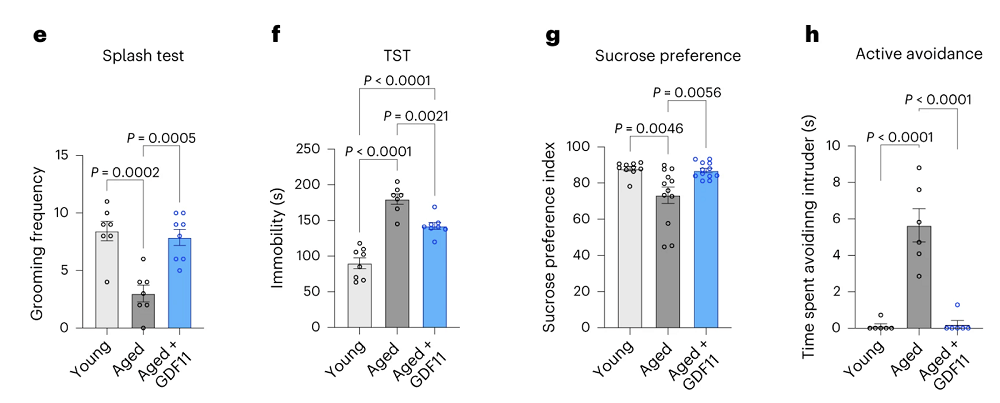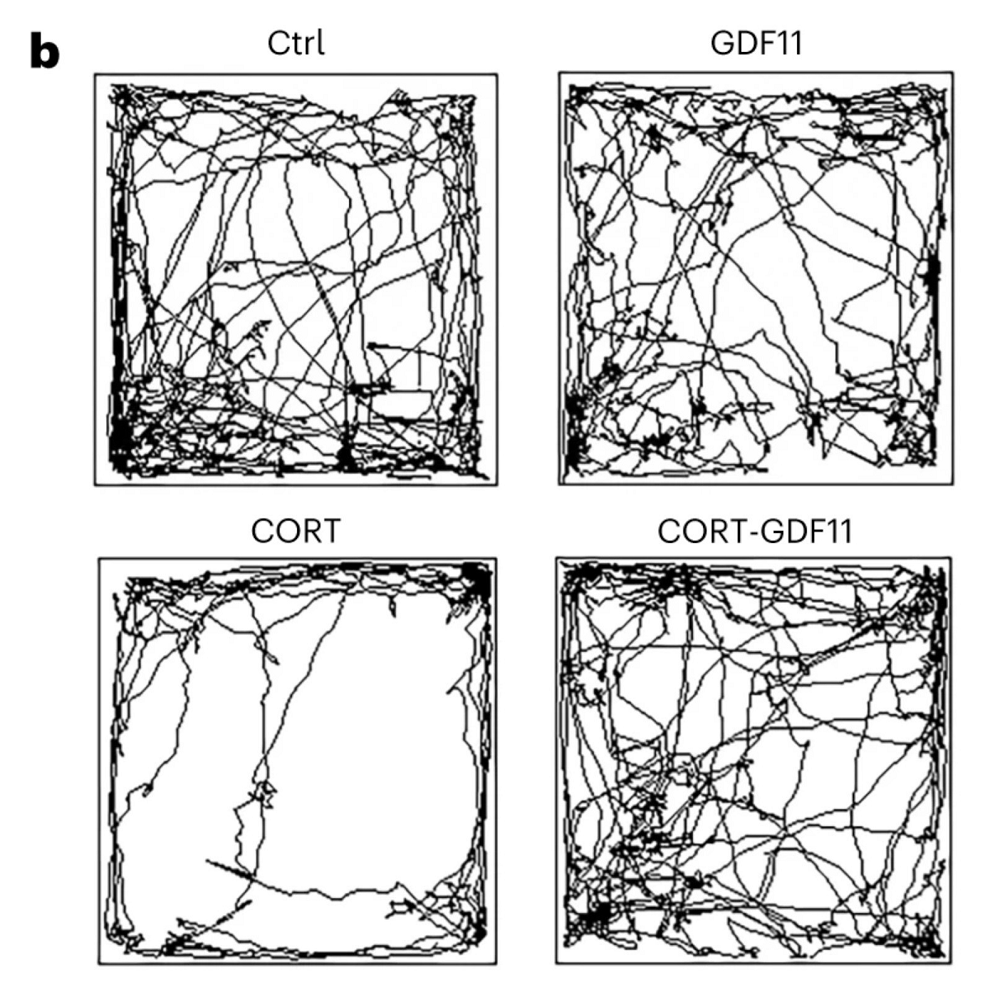Scientists have shown that the protein GDF11 can reverse depression-like symptoms in naturally aged mice and in a mouse model of depression. Depressed humans have lower GDF11 as well [1].
Depression and aging
Severe mental disorders, including depression, have been linked to significantly shorter lifespans [2]. According to one study, depressed people “have a higher incidence of various diseases of aging, such as cardiovascular and cerebrovascular diseases, metabolic syndrome, and dementia.” [3] This makes depression an important target of longevity research.
However, treating depression is difficult. Many prescription antidepressants are addictive, have serious side effects, and don’t always work. In fact, the whole theory behind serotonin-increasing antidepressants was called into question by a recent study [4], although its findings were probably taken out of proportion.
In this new study, published in Nature Aging, the researchers investigated the protein called growth differentiation factor 11 (GDF11), a member of the transforming growth factor beta (TGF-β) superfamily, as a potential antidepressant.
GDF11 plays an important role in the development of the central nervous system and regulates neurogenesis in adults. Depression has been linked to a decrease in the volume of the hippocampus, the main locus where adult neurogenesis occurs. Previous research has shown that GDF11 supplementation can increase hippocampal neurogenesis in aged mice [5].
Smarter and happier?
In the study, naturally aged mice showed a significant increase in depression-like symptoms compared to young controls. For instance, their grooming frequency dropped almost threefold. The tail suspension test (in which a mouse is briefly suspended by its tail) showed that old mice remained immobile for longer, which indicates a diminished will to escape.
The intruder avoidance test showed that older mice were more apathetic and less inclined to chase intruders out of their territory. Finally, the researchers tested for the inability to experience pleasure (anhedonia), finding that aged mice were less attracted to a sucrose solution. GDF11 treatment restored all but one of those parameters to youthful levels.

As expected, older mice also experienced a decline in cognitive abilities. In a test designed specifically to assess hippocampus-dependent spatial memory, the novel object location test, aged mice spent much less time investigating the novel location. This cognitive decline was reversed to youthful levels by the treatment. However, the treatment failed to improve anxiety and physical performance in aged mice.
Increased neurogenesis confirmed
The researchers then investigated the mice’s brains. Analysis of neurogenesis markers revealed a 53% increase in immature neuroblasts in the subgranular zone (SGZ), the part of the hippocampus heavily populated by neuronal stem cells, indicating improved neurogenesis.
The treatment also decreased levels of cellular senescence in SGZ almost to the levels observed in young controls, as measured by senescence-associated β-galactosidase. Two other markers of senescence, p16 and p19, which are elevated in aged mice, were also significantly reduced by GDF11. In treated mice, several autophagy-related proteins were upregulated, with FoxO3a being upregulated even compared to young controls.
In cultured hippocampal neurons, GDF11 caused a significant increase in autophagy and neuronal activity. To investigate whether the increase in neuronal activity had been caused by autophagy, the researchers knocked down the autophagy-related protein Beclin1, which halved the GDF11-induced effect. The same results were obtained by blocking autophagy with the antibiotic Bafilomycin A1.
Of depressed mice and men
The researchers also experimented with young mice in which depression-like behavior was induced by corticosterone (a well-established murine model of depression). Just like with naturally aged mice, GDF11 alleviated most depression-like symptoms. For instance, in the well-known open field test, where avoidance of the central zone signals decreased activity and exploration, GDF11-treated mice performed on par with healthy controls.

Finally, the researchers recruited 57 young adults with MDD (major depressive disorder) and found that GDF11 levels in their blood were significantly lower than in age-matched controls. In a larger cohort of 759 young adults (103 with an ongoing depressive episode and 656 controls) aged between 21 and 32 years old, the difference was even more pronounced, reinforcing the link between GDF11 and depression.
Conclusion
The link between depression and aging calls for a serious investigation. This study suggests that the relationship between them might be mediated by decreased hippocampal neurogenesis, which can be attenuated by systemic administration of GDF11. Lower levels of GDF11 in depressed young adults lend some support to this hypothesis.








































